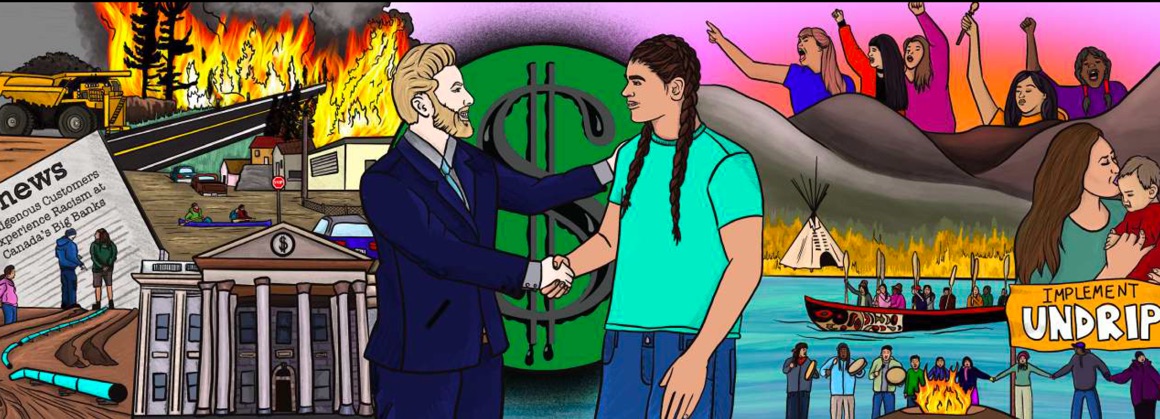New report on banks “Redwashing” Indigenous practices

A new report out this week from the Yellowhead Institute dives into the Indigenous practices and policies at Canada’s big 5 banks, including RBC. Unsurprisingly, the authours found that despite a lot of recent high profile external and internal committees, announcements, and sponsorships, the actual policies at banks on Indigenous rights were typically “performative and superficial”.
Here’s the executive summary:
Emerging from an explosion of resource development in the 1990s
and corresponding conflicts in the courts, Indigenous people have
pushed for the development of minimum legal standards such as
the Duty to Consult and Accommodate to protect their lands and
resources. While approaches to consultation and accommodation
have been ad hoc, failing to honour these new legal principles
has given rise to a fear or culpability among industry. Departing
from this context, the research here turns towards those most
implicated: banks. How are banks responding to the rise of
Indigenous rights?The “Redwashing Extraction” research team analyzed the role that
the Royal Bank of Canada, Toronto Dominion, Scotiabank, Bank
of Montreal, and the Canadian Imperial Bank of Commerce have
played financing resource extraction against the backdrop of their
approaches to Indigenous relations more generally. By taking a
snapshot of available data between 2019–2021, we were able to
understand how each of Canada’s Big Five Banks has approached
Indigenous relations and their interpretation of Indigenous rights.We found that while there are modest examples of progress, bank
efforts are typically performative and superficial. Moreover, they
tend to mask their inaction behind self-reporting certification
processes that validate their limited engagement with communities.
Ultimately, we argue that recent legal tools might be the only
short-term opportunities to continue holding the financial industry
accountable for infringements on rights and title.
You can read the full report on the Yellowhead Institute website.
